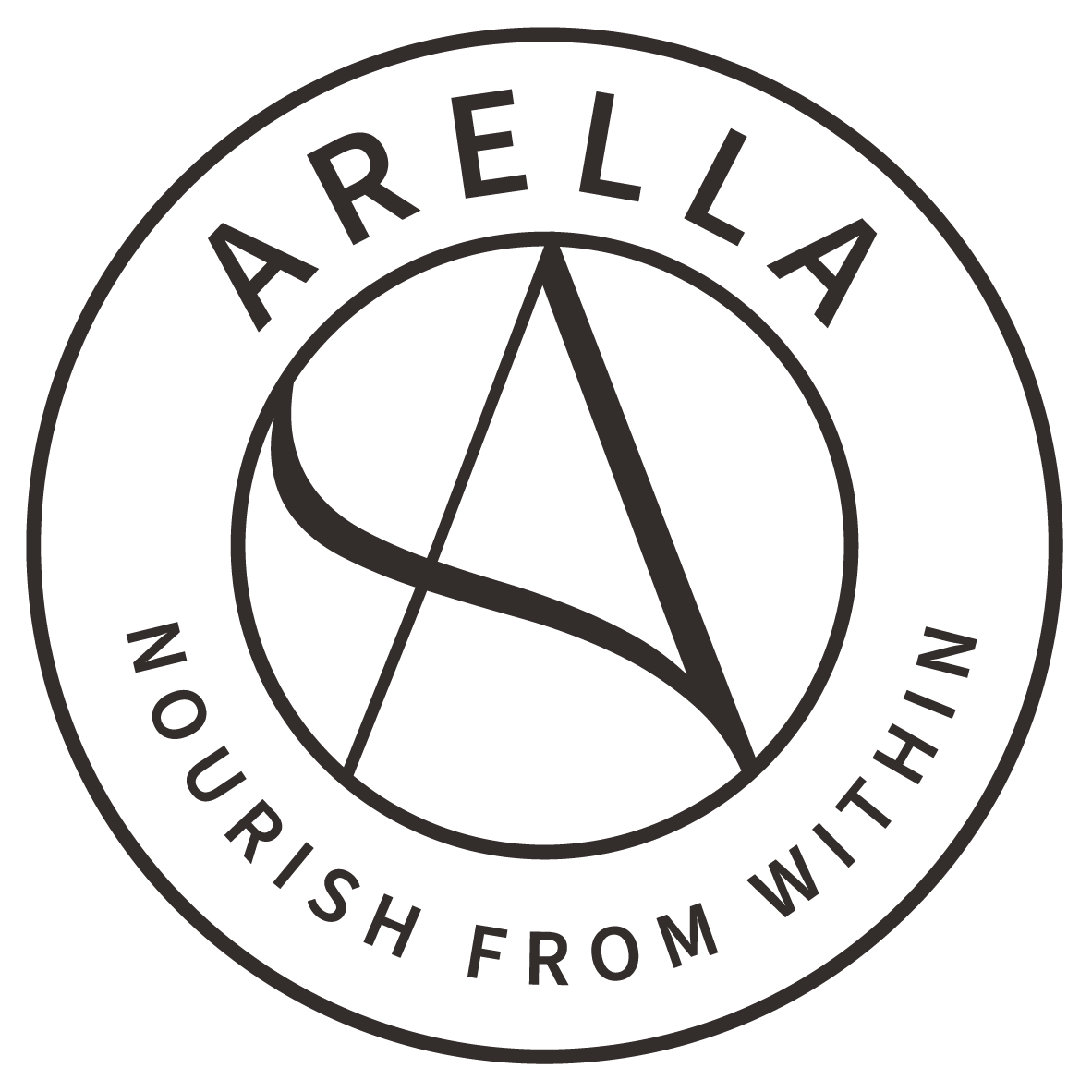
There are hundreds of menopause supplements on the market, but can you trust what they say on the packet?
After developing the award-winning Vegan Liquid Collagen Supplement, Arella Beauty’s founder, Laura, wanted to continue her holistic wellbeing journey. She noticed that there was a lack of scientifically backed menopause supplements. So, Laura decided to expand her knowledge and create a menopause supplement made by women, for women.
We’re taking a dive into the key ingredients of the Arella Pause Supplement, the science behind it and what it does to elevate your menopausal health.
Do you need a menopause supplement?

Before we get into it, you might ask yourself, do I even need to take a supplement for menopause? The answer is most likely - yes.
A 2022 national survey by British Menopause Society found shocking statistics when researching women’s quality of life during perimenopause and menopause:
-
50% of women say menopause affects their home life.
-
One third report menopause impacts work.
-
50% feel that menopause affects their sex life.
-
36% found that menopause impacts their social life.
The science behind our supplement

Arella Pause is a holistic treatment for menopause and thoroughly backed by science. Here’s the research to support some of the key ingredients in our award-winning menopause supplement:
Sage: The hot flush saviour

Sage (Salvia officinalis) is a silvery green herb originating from Southern Europe and the Eastern Mediterranean. Sage has been used for centuries to treat menopausal symptoms and there’s been a rise in scientific studies on the effect of sage for hot flushes.
Where’s the science?

A 2011 study gave a tablet of fresh sage leaves once a day to 71 patients experiencing menopause. The intensity of hot flushes decreased by a staggering 50% in 4 weeks and by 64% after 8 weeks. Participants also found that the number of hot flushes reduced by 46%, 62%, 79%, and 100% throughout the 8 weeks.
In a 2019 study on the effects of sage in postmenopausal women, researchers gave participants a 100mg sage extract for 4 weeks. After the 4 weeks, they discovered the women had less severe hot flashes, night sweats, panic, fatigue, and concentration issues.

The positive benefits of sage are most likely because it contains the plant compound phytoestrogen, which mimics the hormone oestrogen. Oestrogen is higher in women than men, but it gradually decreases throughout menopause, disrupting the brain’s temperature regulation system. When you provide the body with phytoestrogen, it replicates oestrogen, rebalancing your internal thermostat and reducing hot flushes.
Vitamin D3: The energy enhancer

Vitamin D3 plays a role in energy production. Evidence suggests that vitamin D helps improve energy because it enhances cell function to ensure everything is working optimally. It’s also an anti-inflammatory for better circulation and balances hormones to reduce mood disorders, which can cause chronic fatigue if left untreated.
Read more: Always Tired? Why You're Exhausted and How to Fix It.
Your body makes vitamin D by absorbing UVB rays from the sun. However, during menopause, oestrogen levels decline, which reduces the metabolism of vitamin D. It could be the reason you feel exhausted no matter how much sleep you get!
Where’s the science?

A 2016 study gave a vitamin D3 supplement to a control group experiencing fatigue in otherwise healthy individuals. Participants rated the severity of tiredness using a fatigue assessment scale (FAS). Results saw a significant improvement in the FAS in patients who took a vitamin D supplement compared to those who didn’t.
Another 2014 study researching vitamin D and fatigue balanced vitamin D levels in patients with a deficiency. They found it improved fatigue symptoms after just 5 weeks! Even the NHS recommends taking a daily vitamin D supplement over winter to compensate for low light levels and vitamin D production.
Read more: How to Get More Vitamin D in Winter.
Red clover extract: The mood balancer

Do your moods feel like they’re all over the place since menopause? It’s not in your head - it’s in your body. Around 69% of British women find anxiety “very” or “somewhat difficult” during menopause. That’s not all. Perimenopausal women (the time right before menopause starts) may experience up to a 40% higher risk of depressive symptoms.
Red clover is a small, unsuspecting flower that has been shown to elevate mood and lower anxiety and depression in menopausal women. That’s why it’s a key ingredient in our menopause supplement.
Read more: How To Reduce Hormonal Stress.
Where’s the science?

A 2009 study looked into the effects of mood and red clover in postmenopausal women. The study recorded the women’s depression and anxiety symptoms using a Hospital Anxiety and Depression Scale (HADS) and Zung's Self Rating Depression Scale (SDS). Researchers then gave participants two daily capsules of 80 mg red clover extract for 90 days.
Results found that a red clover supplement reduced the average participant’s HAD score by 76% for anxiety and 78.3% for depression. The decrease was also reflected in participants' SDS (self-assessment score), reporting an 80.6% reduction in mood disorder symptoms.
Vitamin E: The sexy supplement

Vaginal dryness is a common complaint during menopause and it can negatively affect sex, making it irritating and painful. Aside from sex, dryness can also affect everyday life by feeling uncomfortable. Vitamin E is a well-researched solution to the problem.
Where’s the science?

A 2016 study gave 100 IU of vitamin E supplements to postmenopausal women with vaginal dryness. After 4 weeks, results found that 76.9% participants had reduced symptoms. After 12 weeks, there were no adverse side effects, making it an excellent option for women who are sensitive to hormone replacement therapy or prefer a holistic method to treat symptoms.
Cinnamon: The body balancer

It’s common to experience weight gain during menopause due to the drop in oestrogen. The hormone fluctuation can cause insulin resistance, which means your body holds onto sugar rather than processing it. Your metabolism also slows down during menopause, delaying the breakdown of food into energy.
Cinnamon is a sweet and unsuspecting spice that’s been consistently used to balance weight. We’ve paired it with other natural ingredients in our supplement to tackle menopausal weight fluctuation.
Read more: Does collagen help with weight loss?
Where’s the science?

A 2022 study researched the relationship between cinnamon and weight regulation. They found that cinnamon supplements significantly reduced body weight and BMI. A following 2023 study gave a daily cinnamon and ashwagandha supplement to overweight patients, who lost weight after only 4 weeks.
There’s even more evidence showing that cinnamon is a simple weight loss supplement. A 2020 research paper gathered the results of 12 trials, with a total of 786 participants, using cinnamon as a weight loss treatment. Each one shows that cinnamon significantly decreases weight.
The power of cinnamon may be due to the spice balancing insulin to lower sugar cravings. Cinnamon is also a potent anti-inflammatory which improves blood flow for better energy, potentially reducing the need for snacking or eating larger meals.
Arella Pause: The science behind your menopause

You can find all these ingredients and more in the Arella Pause supplement. Improve your quality of life at work, home, and social events, and benefit from our award-winning, science backed menopause supplement.
Try Arella Pause today.
Written by Emma Carey for Arella Beauty.
Emma is a holistic beauty and wellness writer. She has three years of experience in the well-being industry and a Master’s degree in Creative Writing and Wellness. Check out her portfolio and follow her on Instagram.
Read more:
Client testimonials for Arella Pause





